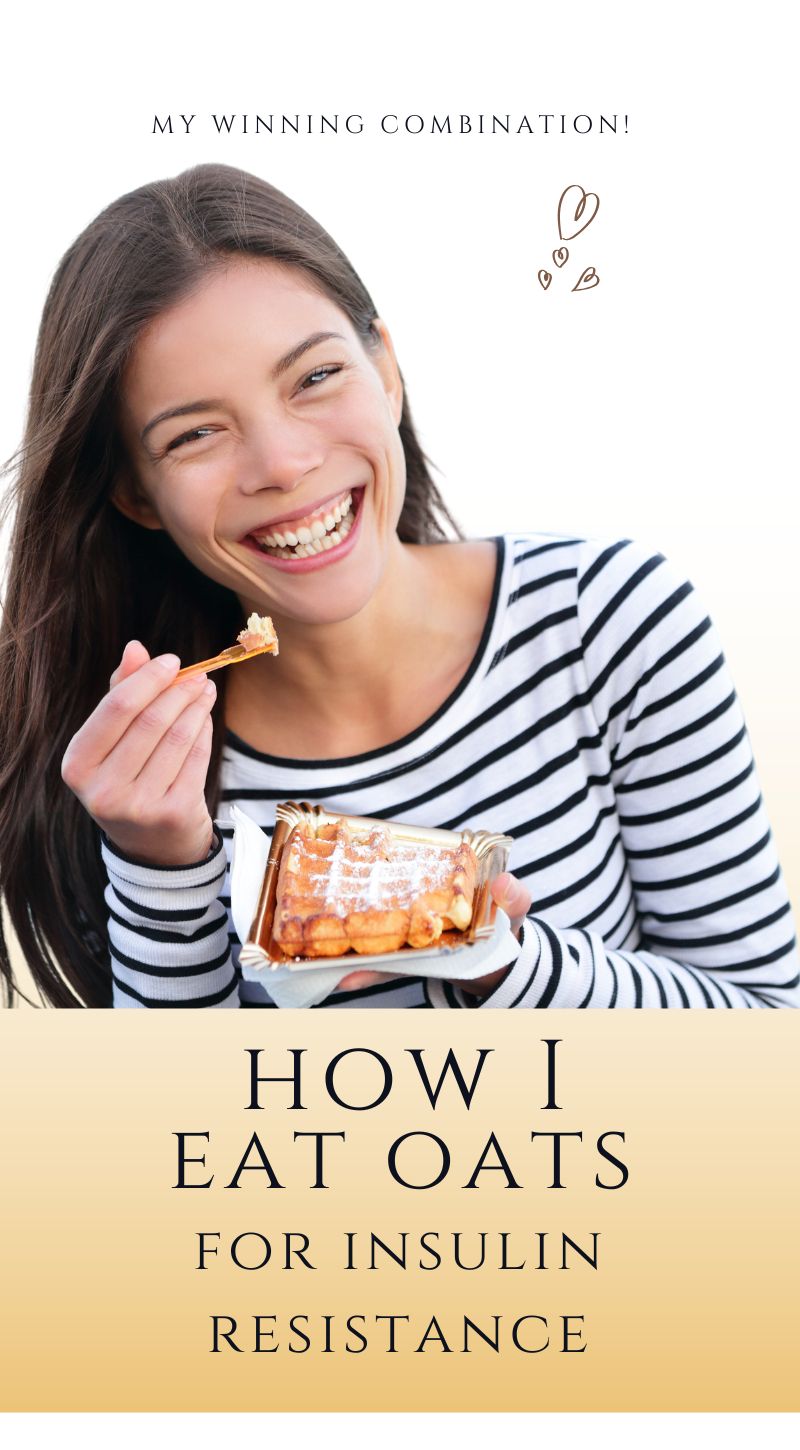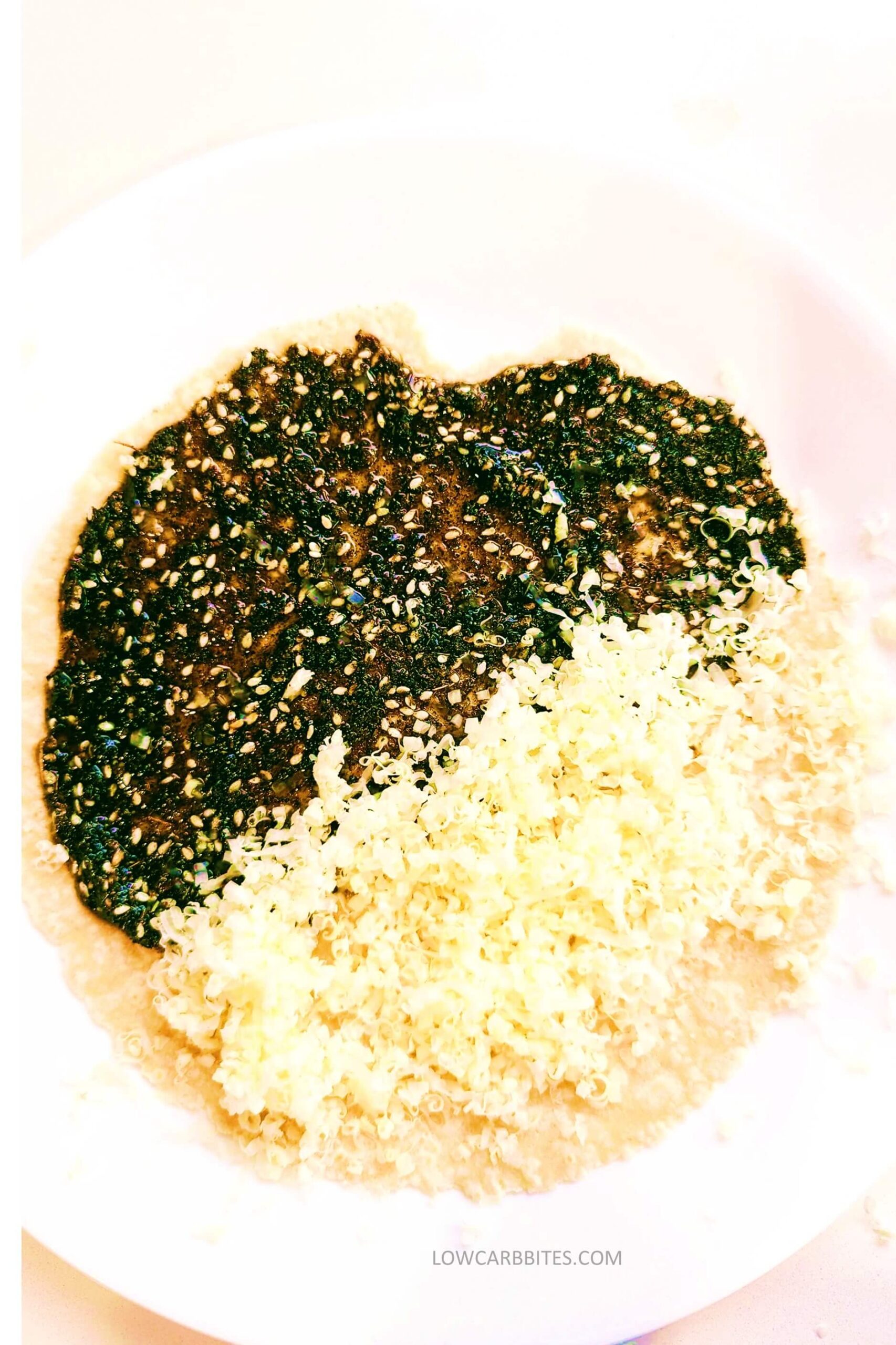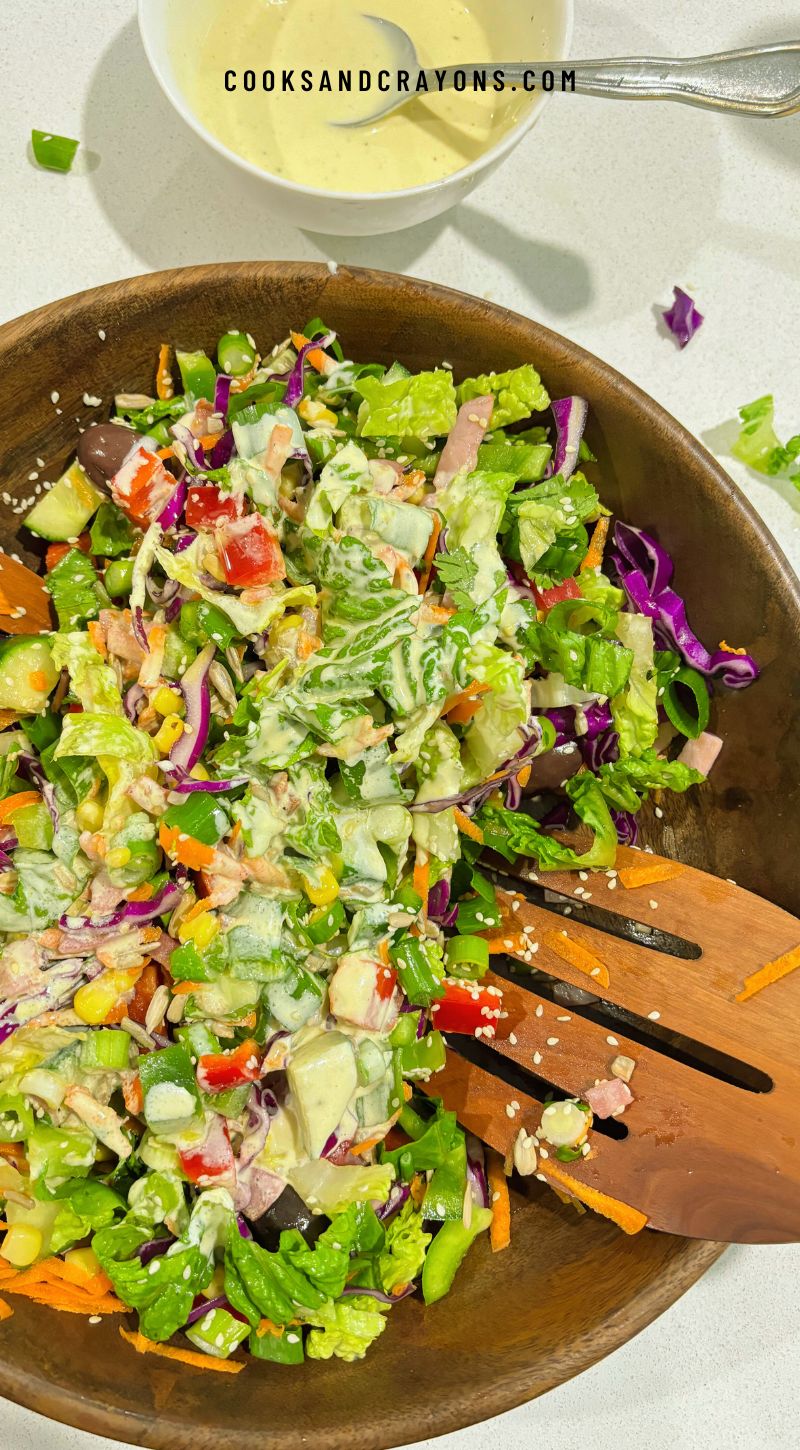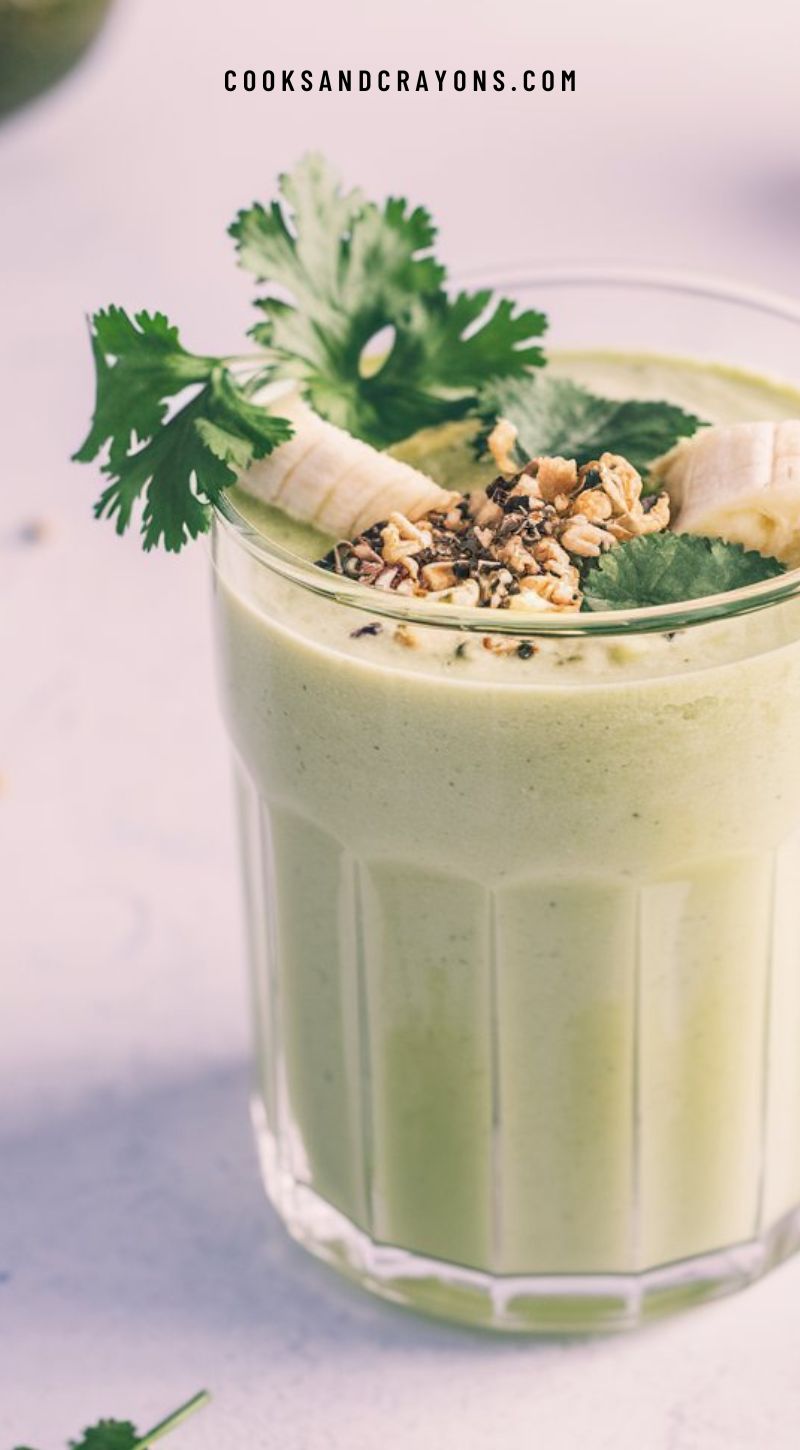Are Bananas Good for PCOS? My Blood Sugar Test Results
Bananas, often celebrated for their nutritional value, are a topic of debate in PCOS diets due to their natural sugar content. But are they truly beneficial for those with insulin resistance and PCOS symptoms? Are bananas good for pcos? I have experimented time and time again to check this. I used a CGM and a blood testing kit to determine what is bets suited for my own body. However, I do know that some combinations work. I’ll discuss them below!
Polycystic Ovary Syndrome (PCOS) is a hormonal disorder affecting millions of women worldwide. Its symptoms range from irregular periods and weight gain to insulin resistance, making dietary choices crucial in managing its impact.
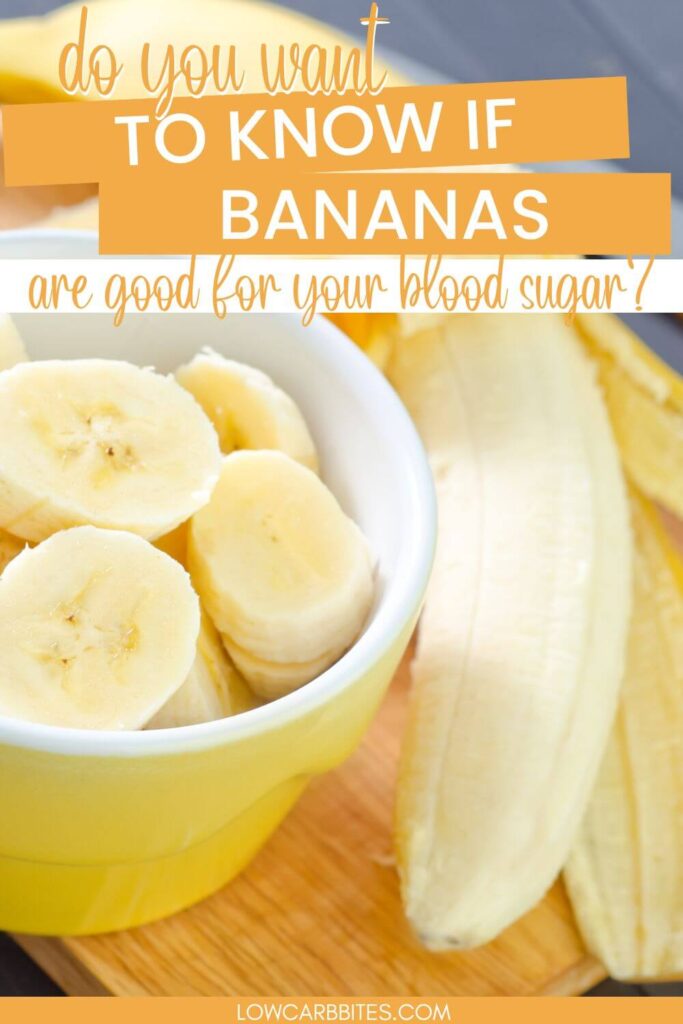
Why Are Bananas Nutritious?
Bananas are a powerhouse of nutrients. They’re rich in vitamins B6 and C, essential for overall health. Their high fiber content aids in digestion and can help manage blood sugar levels. Additionally, bananas contain resistant starch, a type of starch that behaves like fiber in the body, aiding in gut health and promoting fullness.
What Is Insulin Resistance?
Insulin resistance is a hallmark of PCOS. It occurs when cells fail to respond to insulin properly, leading to elevated blood sugar levels. This condition heightens the risk of type 2 diabetes and heart disease.
Are Bananas Bad for Insulin?
Bananas, being a fruit, do contain natural sugars, primarily in the form of fructose. However, their glycemic index (GI) is moderate, meaning they don’t cause rapid spikes in blood sugar levels compared to high-GI foods like white bread or fruit juice.
Are Bananas Good for PCOS?
For PCOS patients, bananas can be part of a healthy diet when consumed in moderation. Their high fiber content helps regulate blood sugar, and their nutrients contribute to overall health. However, individuals should monitor their intake, especially if dealing with insulin resistance.
What My Blood Test Results Were After Eating Bananas
Conducting a personal blood sugar test after consuming bananas can provide valuable insights.
In my experiment, I monitored my blood glucose levels after eating ripe and over-ripe bananas. Surprisingly, my levels remained relatively stable with the ripe banana but very variable with the more ripe it was.
Blood sugar test before the banana: 85
Blood sugar test 1 hour after eating: 115
Blood sugar test 2 hours after eating: 110
This tells me that bananas aren’t the best choice for my blood sugar since even after two hours, the spike hadn’t come down yet.
How to Eat Bananas If You Have Insulin Resistance
Pairing bananas with foods that slow down digestion, like healthy fats or proteins, can help mitigate their impact on blood sugar levels. Try having bananas with almond milk or peanut butter to balance their natural sugars.
When incorporating bananas into a diet tailored for managing insulin resistance, strategic pairing and mindful consumption can significantly mitigate their impact on blood sugar levels. Here are some approaches to consider:
1. Pair with Healthy Fats and Proteins:
Almond Butter or Peanut Butter: Spread a thin layer of almond or peanut butter on banana slices. The healthy fats and protein in nut butter slow down digestion, preventing rapid spikes in blood sugar.
This really did impact my blood sugar once I added protein and fat to the meal, like protein powder or peanut butter.
Greek Yogurt: Combine bananas with Greek yogurt, which offers protein and probiotics. This combination provides a balance of nutrients, aiding in better blood sugar regulation.
2. Combine with Low-GI Foods:
Chia Seeds or Flax Seeds: Sprinkle ground flax or chia seeds over banana slices. These seeds are rich in fiber and healthy fats, further slowing down the digestion of sugars from bananas.
Whole Grains: Pair bananas with whole grains like oats or quinoa. The complex carbs and fiber in whole grains complement the fruit’s natural sugars, preventing sudden spikes in blood glucose levels.
3. Incorporate into Balanced Meals:
Smoothies: Blend bananas with leafy greens, avocado, or a scoop of protein powder to create a balanced, nutrient-dense smoothie. The inclusion of greens and healthy fats helps regulate the release of sugars from the fruit.
Oatmeal: Add sliced bananas to a bowl of oatmeal along with nuts or seeds. Oatmeal’s fiber combined with the bananas’ nutrients creates a filling and balanced meal that stabilizes blood sugar levels. Although, even with oatmeal, you might want to be careful how you eat them.
4. Mind Portion Sizes:
Moderation: Control portion sizes by consuming smaller servings of bananas. Enjoying half a banana instead of a whole one can help manage the fruit’s impact on blood sugar.
Consider Ripeness: Opt for less ripe bananas when possible. Over-ripe bananas tend to have higher sugar content as their starches convert to sugars during the ripening process.
5. Monitor Blood Sugar Levels:
Testing and Observation: Perform personal blood sugar tests after consuming bananas to gauge individual responses. This helps in understanding how bananas specifically affect your blood glucose levels.
6. Variety and Balance:
Diversify Your Diet: Don’t solely rely on bananas; incorporate a variety of fruits and vegetables to ensure a balanced intake of nutrients and fiber.
Meal Planning: Integrate bananas into a well-rounded meal plan that includes a mix of healthy fats, proteins, complex carbs, and fiber from various sources.
By being mindful of how bananas are consumed—pairing them with foods that slow down digestion, controlling portion sizes, and monitoring individual responses—those with insulin resistance can enjoy the benefits of bananas while minimizing their impact on blood sugar levels. Ultimately, the key is to create balanced meals that support overall health and assist in managing insulin sensitivity.
Lifestyle Changes and PCOS Management
Besides dietary adjustments, lifestyle changes play a pivotal role in managing PCOS symptoms. Regular physical activity, a diet rich in whole grains, healthy fats, and complex carbs, can aid in weight management and improve insulin sensitivity.
Two Simple Blood Sugar Friendly Banana Recipes
Absolutely! Here are two simple and delicious recipes incorporating bananas, specifically tailored to support managing insulin resistance:

1. Banana & Almond Butter Overnight Oats
Ingredients:
- 1 ripe banana, mashed
- 1/2 cup rolled oats
- 1 cup almond milk (unsweetened)
- 2 tablespoons almond butter
- 1 tablespoon chia seeds
- 1/2 teaspoon cinnamon (optional)
- 1 tablespoon maple syrup (optional, for sweetness)
- Sliced bananas and almonds for topping (optional)
Instructions:
- In a bowl, mash the ripe banana.
- Add rolled oats, almond milk, almond butter, chia seeds, cinnamon (if using), and maple syrup (if desired). Mix well until combined.
- Cover the bowl or transfer the mixture to a mason jar.
- Refrigerate the mixture overnight or for at least 4 hours.
- Before serving, stir the mixture and add sliced bananas and almonds on top if desired.
This recipe is rich in fiber, healthy fats from almond butter, and low-GI carbohydrates from oats and bananas. It’s a balanced breakfast that helps regulate blood sugar levels throughout the day.
2. Banana & Berry Smoothie Bowl
Ingredients:
- 1 ripe banana
- 1/2 cup mixed berries (strawberries, blueberries, raspberries)
- 1/2 cup Greek yogurt (unsweetened)
- 1 tablespoon flax seeds
- 1/4 cup almond milk (unsweetened)
- Toppings: sliced banana, chia seeds, shredded coconut, and nuts
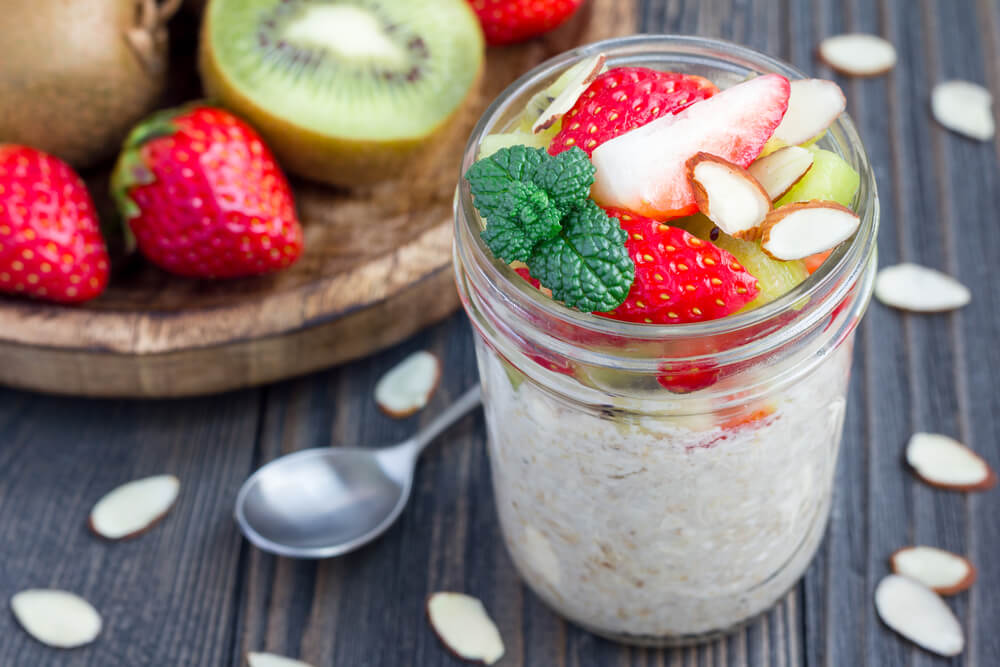
Instructions:
- In a blender, combine the ripe banana, mixed berries, Greek yogurt, flax seeds, and almond milk.
- Blend until smooth and creamy.
- Pour the smoothie into a bowl.
- Top with sliced bananas, chia seeds, shredded coconut, and your choice of nuts.
This smoothie bowl is packed with antioxidants, fiber from fruits and flax seeds, and protein from Greek yogurt. It’s a nutrient-dense option that balances the natural sugars from bananas and berries.
Both recipes emphasize the incorporation of bananas into balanced meals, combining them with ingredients that slow down digestion and support better blood sugar regulation. These recipes offer delicious ways to enjoy bananas while managing insulin resistance and supporting overall health.
Making Better Choices
Opting for less ripe bananas or incorporating them into meals with ingredients that enhance insulin sensitivity, like flax seeds or cinnamon, can further improve their impact on blood sugar levels.

In conclusion, bananas can be part of a healthy PCOS diet plan when consumed in moderation and in conjunction with other nutrient-dense foods. They offer vital nutrients, fiber, and energy without causing drastic blood sugar spikes. However, individual responses may vary, and it’s essential to monitor how bananas affect your body specifically.
Remember, managing PCOS involves a holistic approach encompassing dietary adjustments, regular exercise, and overall lifestyle changes. Bananas, when incorporated sensibly, can indeed be part of a balanced and nutritious diet for individuals dealing with PCOS symptoms.

